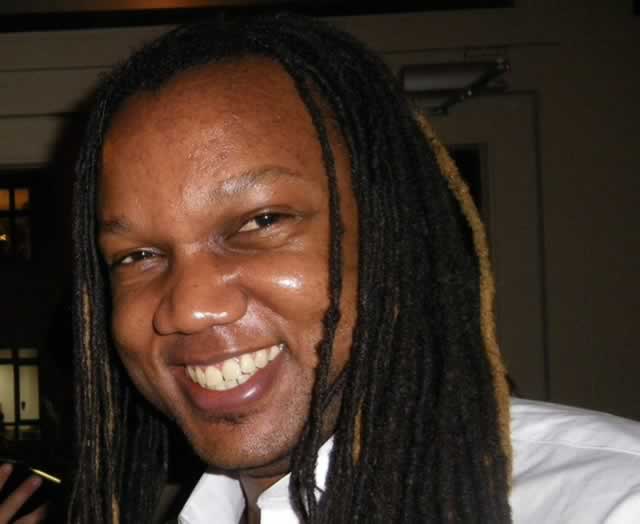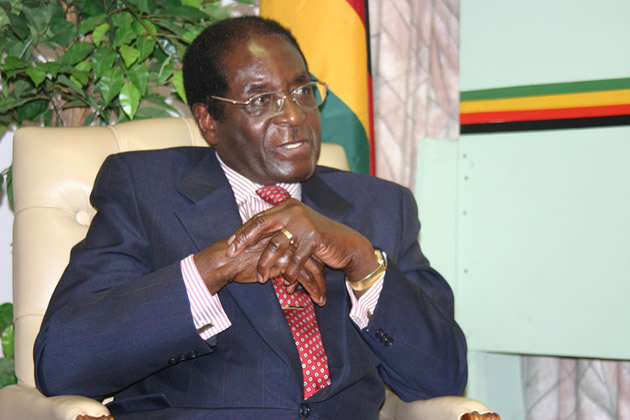Caine’s post-nationalist abstracts

Stanley Mushava Literature Today
I do not know all the normative abstractions for the reception of literature of a post-modernist orientation.
But I believe an old-fashioned critic can be forgiven for looking for heroes and heroines, valour and virtue, complexity and resolution in a book in which he invests so many treasured after-hours on behalf of African readers.
It is a lesser offence to tire an audience’s patience than to mislead its sense, according to poetic satirist, Alexander Pope’s catalogue of bad tastes.
Quite clearly, the Caine Prize for African Writing’s criterion for the 2014 anthology borders on the greater offense.
As the most prestigious form of recognition for new fiction from Africa, the Caine Prize’s annual collection is expected to radiate creative energy and new promise; to be representative of the best of the range.
Not so with the latest anthology.
Some of the stories are negligible. Others positively bad.
Few touches of promise merit genuine credit.
If Caine has spread its tentacles sufficiently to capture the best writing of the day, then most of the featured writers’ drift suggests the end of creativity.
What else can be said of a thread of tiresome mediocrity where the only constant is an inordinate obsession with eroticism – an apparent cop-out from the burden of creativity?
The relationship between imagination and social significance seems wafer-thin.
A climate of depravity dampens much of the anthology.
Strivings of humanity which, for me, are the material for great literature, are barely perceptible.
Eroticism is a banal feature in this gallery of post-nationalist abstracts.
Almost all the 17 writers are under an apparent obligation to smut on the page.
Ten out of 17 entries deploy expansive details of casual sex and profanity.
“Chicken,” a short-listed entry, has an explicit reconstruction of a lesbian encounter and a graduate who earns a city life by selling her eggs, literally as it were.
“Running” is about a woman who relishes the experience of rape, while “The Lifebloom Gift” and “As a Wolf Sweating Your Mother” are disturbed homosexual narratives.
It is surprising how many stories, in a book supposed to be a variegated vista of contemporary African talent, revolve around prostitution.
Could this be the new “single story” from out of Africa, a continent with so much happening; so many problems up for deliberation?
I do not know all the normative abstractions for the reception of literature of a post-modernist orientation.
But I believe an old-fashioned critic can be forgiven for looking for heroes and heroines, valour and virtue, complexity and resolution in a book in which he invests so many treasured after-hours on behalf of African readers.
I found none.
Ironically, a pertinent narrative on the horror of domestic violence, Violet Masilo’s “The Murder of Ernestine Masilo,” lends itself to a rather predictable sequence.
The discussion remains pertinent with so much gender-based violence going unrestricted, all the greater need for narrative innovation to keep the discussion alive.
“The Gorilla’s Head” by Billy Kahora seems to recall Luis Bernardo-Honwana’s “We Killed Mangy-Dog” in the processes of empathy between a young introvert and a doomed primate.
In “The Intervention,” Tendai Huchu, has a light-hearted go at the Zimbabwean diaspora. The short-listed story brings together a rather compromised group of counsellors to help out a struggling young couple and, in the process, share their concern about the “situation” at home.
The narrator, a member of the Zimbabwe Poets for Human Rights, makes a rather comical poetic take at the election results: “The children of Africa cry/Waaa-waaa-waa/When they should be laughing/Ki-ki-ki/Can you hear them, can you hear them/ Will you help them, will you help them…”
There has been no shortage of poetasters lately in this uninspiring generation of political writing and, as if to corroborate the point, a rather unreadable story on the “Zimbabwean situation” comes up later in the anthology.
The anthology deploys a fair share of humour and the diction is trimmed to texture but the writers’ thematic engagement with Africa leaves almost everything to be desired.
In recent years, there was swelling dissent that Caine-featured authors seemed to be approaching their writing with a checklist of stereotypes on Africa.
Chimamanda Ngozi Adichie’s “single story” talk was particularly invoked: “The single story creates stereotypes, and the problem with stereotypes is not that they are untrue, but that they are incomplete. They make one story become the only story.”
Helon Habila argued that authors were working around a stereotypical template of Africa by deploying symbols and allusions that evoke pity and fear for Africa in a bid to impress panelists.
“We are talking child soldiers, genocide, child prostitution, female genital mutilation, political violence, police brutality, dictatorships, predatory preachers, dead bodies on the roadside,” Habila pointed out.
Chika Uduah suggested in This Is Africa that a question of supply and demand was provoking writers to major in the sort of work that has come to be expected from Africa.
“The result, for the reader,” Habila argued “isn’t always catharsis, as Aristotle suggested, but its direct opposite: a sort of creeping horror that leads to a desensitisation to the reality being represented.”
Habila, rather overreaching himself, underscored passages of falling snowflakes and children watching porn in NoViolet Bulawayo’s “We Need New Names” as an ideal example of an alternative drift for African fiction.
The prescription concurs with the sort of purposelessness and depravity which came to run the tapestry of the latest anthology.
This year, Caine Prize director, Lizzy Attree, says: “We were heartened by how many entrants were drawn to the explorations of a gay narrative.”
Perhaps the angle for post-nationalist African writers averting their gaze from issues of social significance to issues of private perversion.
As much as it is in vogue, preoccupation with the lower nature was never the material for durable art, much less a basis for critical deliberation.
Caine authors will do well do accept a mantle of higher responsibility and discuss with us what is in the public sphere instead of what is in their toilets and brothels.
Dancehall sing-jay Bugle’s “Nuh Like Da Style Deh” is a pertinent reading to this end.
Lately, I have converted to intellectual humility as a condition for approaching the world and its complex cultural efforts.
Such a conversion precludes the pretence of literary omniscience and the inclination to bend everything into a monolithic world view; rules outbalancing everything with individual scruples.
All the same, I remain perceptive to the elements which make great writing.
A great book carries you along as an emotional participant in the strivings of humanity.“The Gonjon Pin and Other Stories,” by and large, falls short of this range.
One hopes its compass does not represent the best of contemporary African fiction, for that would prove a glaring deficit from the stellar standards posted by the pioneers.
Even now, some of us cannot disentangle ourselves from the nostalgia of the African Writers Series.
Yet I do not see a need arising to revisit this 2014 anthology.
Faulkner’s timeless Nobel acceptance speech remains particularly pertinent: “There are no longer problems of the spirit.
“There is only the question: When will I be blown up?
“Because of this, the young man or woman writing today has forgotten the problems of the human heart in conflict with itself which alone can make good writing because only that is worth writing about, worth the agony and the sweat.
“He must learn them again. He must teach himself that the basest of all things is to be afraid; and, teaching himself that, forget it forever, leaving no room in his workshop for anything but the old verities and truths of the heart, the old universal truths lacking which any story is ephemeral and doomed – love and honour and pity and pride and compassion and sacrifice.
“Until he does so, he labours under a curse. He writes not of love but of lust, of defeats in which nobody loses anything of value, of victories without hope and, worst of all, without pity or compassion.
“His griefs grieve on no universal bones, leaving no scars. He writes not of the heart but of the glands,” Faulkner foretold.
Hopefully, the 2015 Caine anthology will be a breath of fresh air.
Stanely Mushava blogs at upstreamafrica.blogspot.com.










Comments